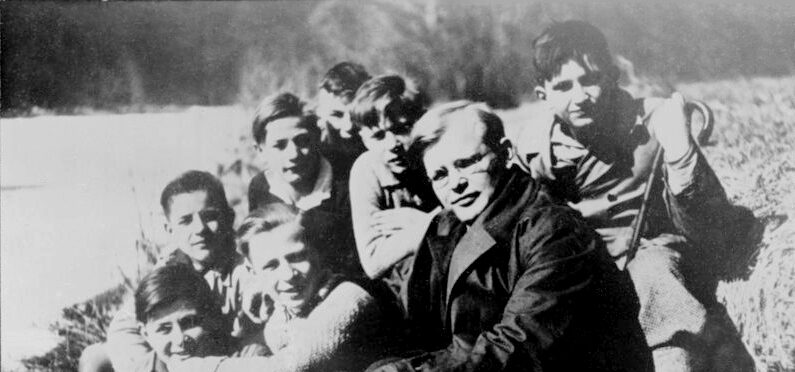A Call to Discipleship: A reflection on Dietrich Bonhoeffer’s book, “The Cost of Discipleship”
Editor's Note: The views and opinions expressed in this article are those of the author and do not necessarily reflect the official policy or position of Regent University, its faculty, administration, or affiliates.
I just finished rereading Dietrich Bonhoeffer’s book, “The Cost of Discipleship” (1959 Macmillan edition). In this book, he states, “When Christ calls a man, he bids him come and die.” These words may seem like a paradox to the concept of Christian flourishing. However, as I contemplate the dying process of self that cleared a path for the growth of God’s will and planting in my life, the words of Bonhoeffer profoundly resonate with me. When I entered the U.S. Navy as a chaplain, Navy Chaplain Capt. Thomas Parham gave me The Cost of Discipleship, as a gift. As I contemplate my life’s journey, I am grateful to share in the ministry of discipleship, with all its challenges and joys.
The Context of the Remark
Bonhoeffer penned these words during a time when the Church in Germany faced unprecedented moral and spiritual challenges. In The Cost of Discipleship, he critiques what he terms “cheap grace” — a form of Christianity that offers forgiveness without repentance, baptism without discipline, and communion without confession. Cheap grace, he warns, reduces the radical nature of the gospel to a transaction devoid of transformation. Against this backdrop, Bonhoeffer introduces the concept of “costly grace” — which demands a full surrender to Christ and obedience that is often accompanied by suffering and sacrifice. His assertion, “When Christ calls a man, he bids him come and die,” underscores the gravity of this commitment.
Bonhoeffer’s Witness
Bonhoeffer’s life serves as a compelling testament to the truth of his theology. His resistance to the Nazi regime, his role in the Confessing Church, and ultimately his imprisonment and martyrdom exemplify the cost of discipleship. For Bonhoeffer, the call to “come and die” was not theoretical; it was a lived reality that defined his ministry and his relationship with Christ. His life demonstrates that discipleship is not only about suffering but also about participating in God’s redemptive work in the world, even at great personal cost.
Leroy’s Testimony
My life in no way compares to the horrendous challenges of Bonhoeffer. However, all of us have challenges as disciples of Christ. What keeps me going is this call to discipleship — to give all that I can for His glory. The more I give of myself for His glory, the more my self-interest decreases, and I feel stronger and more resilient in the Lord. This idea reflects the biblical-theological principle of self-denial for the sake of Christ and the transformative power of discipleship. As the Scripture indicates (Luke 9:23, ESV), “If anyone would come after me, let him deny himself and take up his cross daily and follow me.” This call to discipleship involves laying down self-interest and prioritizing God’s glory and purposes. Apostle Paul captures this transformative power of discipleship in Galatians 2:20, “I have been crucified with Christ. It is no longer I who live, but Christ who lives in me.” I have learned that, as I align my life with Christ’s will, I experience the paradox of losing myself to truly find life (Matthew 16:25). From a renewal standpoint, self-denial is not a form of asceticism but a redirection of purpose and strength toward God. I am learning the lesson that Jesus endeavored to teach his disciples — as self-interest diminishes, we are more empowered by God’s Spirit, which enables believers to experience resilience and strength in the Lord (Isaiah 40:31). I am grateful that, despite my afflictions and adversities, the Holy Spirit has taught me “I can do all things through Christ which strengtheneth me” (Philippians 4:13).
Relevance for Christian Education
As faculty members at Regent University, we are tasked with forming future leaders who embody the call to discipleship in their ministry and scholarship. Bonhoeffer’s remark challenges us to prioritize the cultivation of a theology that embraces the cost of following Christ in a world often seeking comfort over commitment. His words invite us to reflect on how we prepare our students to navigate the tension between cultural accommodation and faithful witness.
Bonhoeffer’s theology of costly grace provides a framework for addressing the challenges of ministry in a post-Christian context. As societal values increasingly diverge from biblical principles, the Church must reclaim a vision of discipleship that is both counter-cultural and transformative. Bonhoeffer’s call to embrace the cross reminds us that the Church’s mission is not to conform to the world but to bear witness to the kingdom of God through lives marked by sacrifice, service, and obedience to Christ.
Conclusion
Dietrich Bonhoeffer’s statement, “When Christ calls a man, he bids him come and die,” remains a prophetic challenge to the Church and Christian education. It calls us to embrace a discipleship that is costly, transformative, and rooted in the cross. May we heed Bonhoeffer’s reminder that true discipleship is marked not by ease but by faithfulness, even in the face of suffering and sacrifice. His life and words beckon us to reflect the radical call of Christ in our teaching, ministry, and witness to the world. What a joy and blessing it is to be bearers of the cross with Christ, knowing our work in the Lord is not in vain (Luke 9:23).







